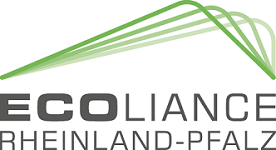TRANSFORMing disposable plastic and development of a circular economy business model
IfaS is a project partner of the Interreg project "TRANSFORM CE - TRANSFORMing single use plastic waste into additive manufacturing and intrusion-extrusion moulding feedstocks and creating a new Circular Economy model for NWE" in the priority area "Increasing resource efficiency in NWE Europe". The aim of the project is to analyse and establish circular economy models for plastics by processing plastic waste and supplying it for high-quality recycling in 3D printing or injection moulding processes. The European partner consortium is headed by Manchester Metropolitan University from Great Britain. The project runs for 3.5 years from September 2019 to March 2023.
The problem of plastic waste, and in particular its negative impact on the environment, is becoming increasingly important in politics, business, science and also in media reporting. In Europe, the north-western countries (Great Britain, Ireland, Germany, France and the Benelux countries) are the main consumers and also the largest producers of disposable plastic waste. The development of a circular economy and the strengthening of the market for recyclates in North-West Europe has many advantages: independence from imports of primary resources, valorisation of disposable plastics, stimulation of demand for recycled products, avoidance of environmental impacts and losses through landfilling and incineration.
Under these conditions, the TRANSFORM-CE project is dedicated to the analysis of existing plastics cycles and is developing circular economy models to increase resource efficiency. The focus is on two types of disposable plastics: low-value plastics such as films from packaging and high-value plastics such as PET bottles. Within the project, two pilot plants are to be built which will recycle these plastic materials. One pilot plant in the Niederladen area is dedicated to the recycling of low-value plastic waste in injection moulding processes (IEM). The other pilot plant will be built in the UK and will use high quality plastic waste in additive manufacturing, i.e. for application in 3D printing (AM).
An overview of the orientation and topics of the project for the implementation of a circular economy in the plastics sector is given in the following figure.
The project consortium consists of partners from research, industry and the public sector. Besides the lead partner, the Manchester Metropolitan University, and IfaS: Materia Nova (Belgium), Social Environmental and Economic Solutions (SOENECS) Ltd. (UK), Gemeente Almere (Netherlands), Save Plastics (Netherlands), Technische Universiteit Delft (Netherlands), Hogeschool Utrecht (Netherlands), bCircular GmbH (Germany), Viridor Waste Management Limited (UK).
In addition to the project partners mentioned above, there are five other sub-partners who have specific roles in the project: BASF (UK), Nano4 (Belgium), Cirwinn (Netherlands) and on the German side Interseroh Dienstleistungs GmbH and the waste management of the Rhein-Lahn district.
As a partner in the TRANSFORM-CE project, IfaS has a budget of around 821,000 € available over the entire project period. Of this, 60% is funded by ERDF (European Regional Development Fund). The funding thus amounts to around 493,000 €. Some €328,000 of own funds must be raised.
Further information on the project can be found on the homepage at: https://www.nweurope.eu/projects/project-search/transform-ce-transforming-single-use-plastic-waste-into-additive-manufacturing-and-intrusion-extrusion-moulding-feedstocks-and-creating-a-new-circular-economy-model-for-nwe/
